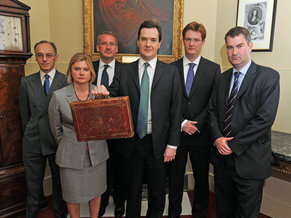
 |
A-Z | Popular | Blog | Business | Search » |
|
Business  Related Guides
Competitive Advantage  Related Topics
Business Costs  Business Economics  Business Goals  Business Plans  Business Metrics  Business Theory  Marketing  |
30 Examples of Business Models John Spacey, updated on
 Bricks and ClicksA retailer who sells products both on the internet and in physical stores. The stores may serve as product showrooms, customer service centers and delivery points.Cutting Out The MiddlemanA producer of a product or commodity who sells their goods directly to customers. This can result in both a higher price for the seller and lower price for the buyer. A common example is a farmers market.Good BusinessA business that has a well defined set of ethics that are a primary concern. Customers who identify with the ethics of the business may become loyal supporters. In many cases, good businesses try to have a positive impact on the environment and the communities in which they do business or source their products.Complementary GoodsA product or service that compliments something offered by another business. An example, is a protective case for a mobile device.DistributorA business that buys a product in bulk to resell to retailers. The distributor may take care of the details of importing, warehousing and marketing that represents a service to retailers.Direct SalesSales of a product or service without a physical location for customers to visit. The lack of a physical location means a lower cost base that makes direct sales competitive on price.Value Added ResellerA value added reseller sells something that is available elsewhere but adds something to it such as additional features or support. For example, a software vendor may sell freely available open source products backed up by implementation and maintenance support.Systems IntegratorA systems integrator is a service that takes different components and makes them work together. It is a common business model in the software industry where systems integration is much of the work of implementing new software.FreemiumOffering a free version of a product or service that requires payment for side purchases, special features, additional content or removal of limitations.FranchisingFranchising is a technique that attempts to scale a business model that works in one location to new locations. It is usually an agreement between a well known business and an investor who offers capital to help the business scale.Pay What You WantAsking users of a service to pay for a service but not specifying a minimum amount. Often used by charity events.MonopolyA monopoly is a dominant business that has no real competition in their industry. This allows the business to charge high prices or impose demanding legal terms on their customers. As a result, monopolies are regulated in most countries.Razor And BladesSelling a product or service cheaply in order to provide something that is needed to operate it. The classic examples are printers and ink, razors and blades or mobile devices and apps.AuctioneeringProviding buyers and sellers with an auction for a commission on each sale.No FrillsA business that competes on price by cutting services commonly offered by their competitors. An example, is a discount airline that charges for things that are commonly complimentary such as baggage or customer service functions.Service ManagementA business that offers to manage something for a fee. For example, a telecom company may offer managed services such as unified communications that come with an service level agreement.One Stop ShopA location or service that offers a number of products and services in one location. The idea is to save the customer time by allowing them to complete a number of purchases quickly. A common example is a well managed convenience store. In Japan, it's common for a small convenience store to offer thousands of commonly used products alongside services such as package delivery, event tickets and bill payments.Collective Business SystemA collective business system pools the resources of multiple businesses for mutual benefit. An example is a co-operative that makes bulk purchases for a number of small community grocers. The bulk purchasing power allows the small retailers to compete with larger competitors.Consumer CollectiveA consumer collective pools the purchasing power of its members to negotiate better prices or terms with sellers. An example is an auto club that may be able to reduce the average annual cost of tow trucks for its members through its purchasing power.AgentAn agent acts on behalf of someone else. This usually means a specialized professional who represents a buyer, seller or talent in contract negotiations or sales. In many cases, an agent will work on a commission.Manufacturing ServicesProvides custom manufacturing services based on product specifications, often referred to as Contract Manufacturing.Design ServicesDeveloping a design based on customer specifications. Examples include web design or product design.IndustrializationIndustrialization is the process of taking something that is produced at a small scale and producing it at a much larger scale. This tends to reduce prices and can have other benefits such as improved quality. Industrialization can also have disadvantages such as negative social and environmental impacts on communities.Mass CustomizationMass customization is a product or service that can be highly customized by customers but is produced at a significant scale. It is an alternative to industrialization, that produces products that are all much the same.Unlimited ServiceA service that has no caps or limits that's offered for a flat fee. An example, is a streaming music service.Owner OperatorA small business that owns equipment that it offers as a service. An example, is a family owned restaurant.Store-within-a-storeA retailer who allows another retailer to operate on their premises in return for a percentage of sales or flat rate rent. The arrangement is typically made amongst complementary goods such as bookstores and coffee shops.UtilityA utility offers something on demand such as electricity, water or computing power. Utilities tend to have high capital costs and offer an undifferentiated service that is fully commoditized. However, some are natural monopolies that have no real competition.Traditional CraftA craftsperson who keeps a tradition alive. The traditional craftsperson is an unusual business model in that most businesses must change rapidly to survive. The traditional craftsperson may do the opposite, strive to keep alive old ways. This strategy can work because people are often in a hurry to abandon a fading industry but demand may last longer than expected or even rebound with time.Club GoodsClub goods are attractions such as a theme park that provide public access to significant assets for a fee. Next: Types of Business ModelMore about business models:
If you enjoyed this page, please consider bookmarking Simplicable.
Business ModelsA list of common business models.Bricks And Clicks
A retailing strategy that combines physical locations with a strong ecommerce presence.
Complementary GoodsA definition of complementary goods with several examples.Collective Business System
An organization that represents businesses or professionals that have something in common.
Product vs Service
The business difference between products and services.
Business Model Definition
The definition of business model.
Scalable Business Model
A definition of scalable business model with several examples.
Two-sided Market
A definition of two-sided market with examples.
Product StrategyA checklist for developing a product strategy.Pricing StrategyAn overview of common pricing strategies.
Product Value
A definition of product value with examples.
PremiumisationThe common types of premiumisation.Product Demand
The basic types of product demand.
Marketing Myopia
A definition of marketing myopia with examples.
Product Extension
The definition of product extension with examples.
Product Market
An overview of product markets with examples.
Product Culture
An overview of product culture with examples.
Product MarketingA guide to product marketing.Product Features Examples
A list of common product features.
Product Planning
An overview of product planning with examples.
Go-To-Market Strategy
An overview of go-to-market strategy with examples.
Product Metrics
A list of common product metrics.
TrendingThe most popular articles on Simplicable in the past day.New ArticlesRecent posts or updates on Simplicable. Site Map
© 2010-2023 Simplicable. All Rights Reserved. Reproduction of materials found on this site, in any form, without explicit permission is prohibited. View credits & copyrights or citation information for this page. |